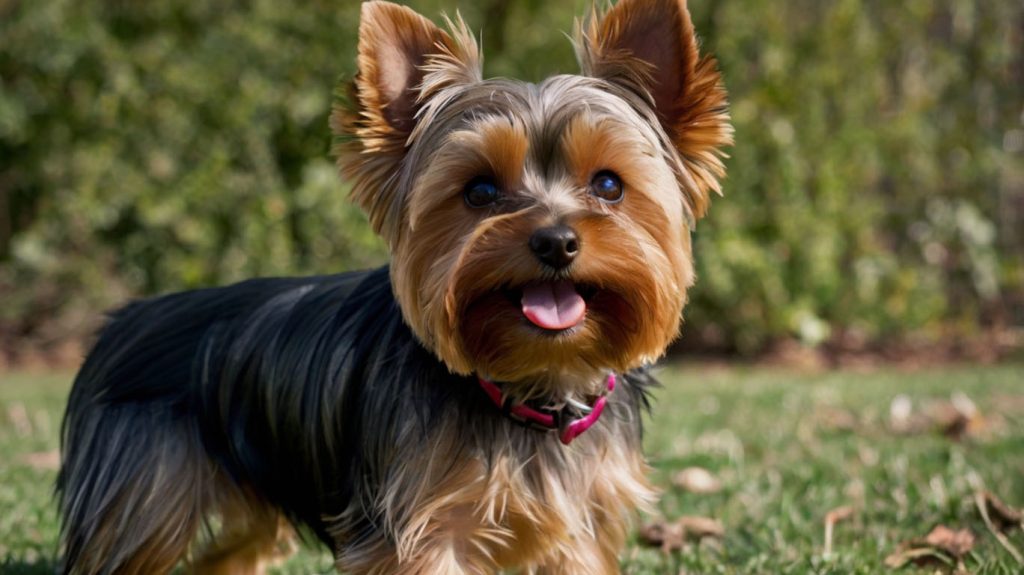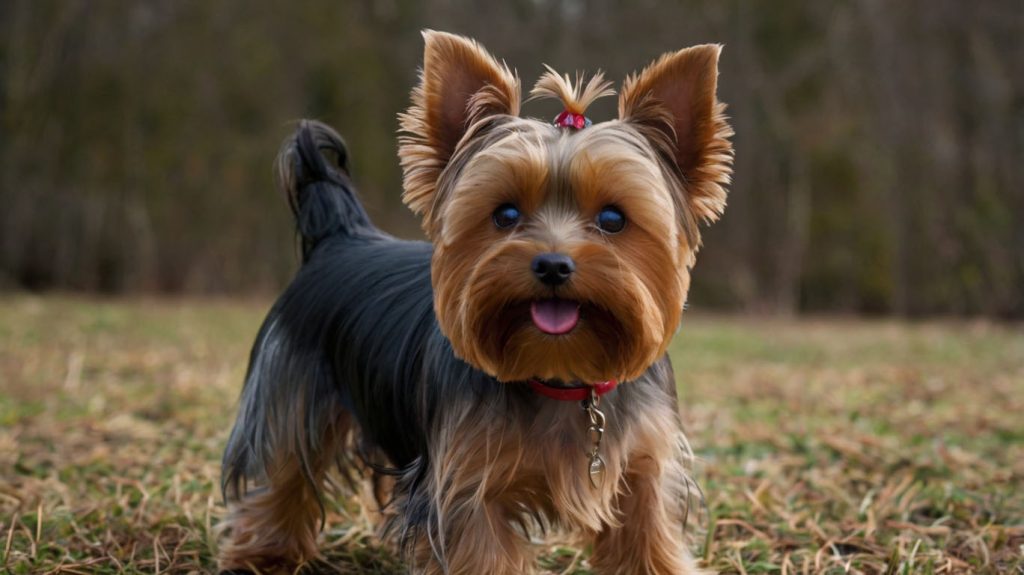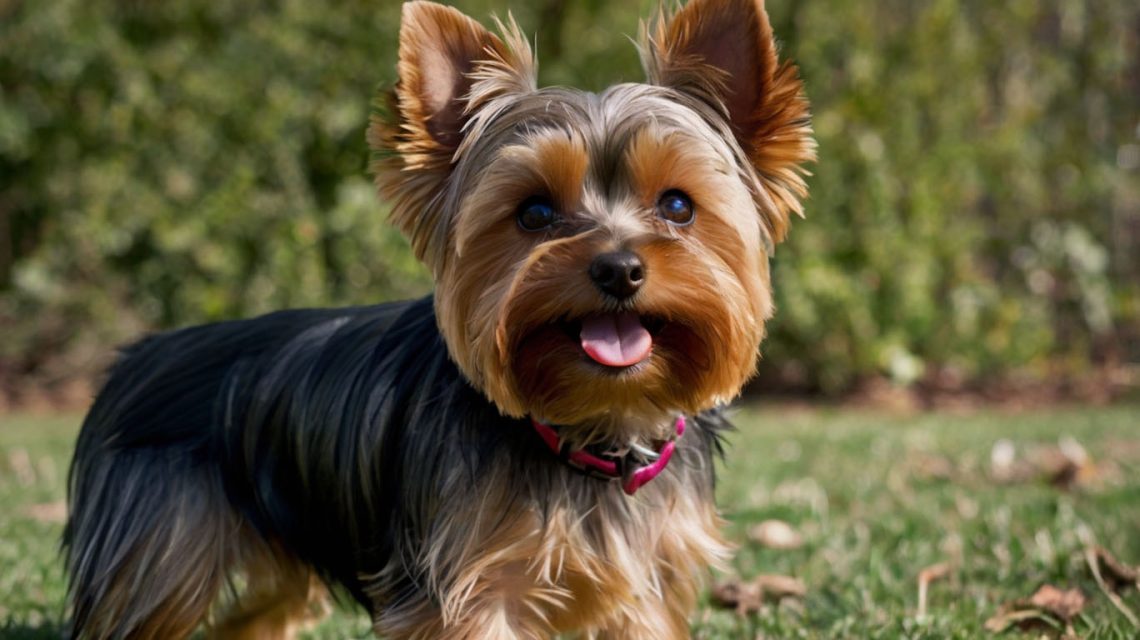The Joy and Challenge of Yorkie Training
Training a Yorkshire Terrier is a rewarding journey filled with highs, lows, and plenty of tail wags. Whether you’re a first-time owner or a seasoned dog parent, yorkie training demands patience, consistency, and a lot of love. Known for their big personalities in tiny bodies, Yorkies are intelligent yet stubborn—making them both fun and challenging to train. In this guide, we’ll walk you through a storyline approach to effectively train your yorkie, build a strong bond, and unlock their full potential.
Yorkie Training : Why It’s Essential from Day One
Understanding the Yorkshire Terrier Temperament
Yorkies are fiercely loyal, intelligent, and full of spunk. However, their small size often leads owners to underestimate the importance of discipline. Starting yorkie training early prevents behavior issues and instills good manners from the get-go.
Early Yorkie Training Builds Better Habits
Puppies are like sponges—they absorb behaviors quickly. The earlier you start, the easier it is to correct and guide their behavior. Early training helps reduce excessive barking, anxiety, and aggression later in life.

Creating a Yorkie Training Plan That Works
Setting SMART Goals for Yorkie Training
To make real progress, define Specific, Measurable, Achievable, Relevant, and Time-bound training goals. For example, “Teach ‘sit’ in 10 days with 3 training sessions daily” is a SMART goal that keeps your plan focused.
Consistency and Routine: The Backbone of Training
Training isn’t a one-off event; it’s a lifestyle. Feeding, walking, and playing at set times reinforces behavior patterns. Moreover, transition words like “next” and “meanwhile” help maintain a predictable training structure for your yorkie.
Potty Training Your Yorkie Without Stress
Proven Housebreaking Techniques
Crate training remains a gold standard for housebreaking Yorkies. It mimics their den instinct and encourages them to hold it until it’s time to go outside.
How to Handle Potty Accidents Gracefully
Accidents are part of the journey. Instead of punishment, calmly clean the mess and revisit your schedule. Overreaction can lead to fear and regression.
Obedience Commands Every Yorkie Should Know
Teaching Sit, Stay, Come, and More
These basic commands form the foundation of all future yorkie training. Use one-syllable cues, eye contact, and high-value treats for best results.
Using Treats and Toys as Reinforcement
Positive reinforcement speeds up learning. However, transition away from treats gradually to ensure your yorkie responds even without a reward in hand.
Socialization Tips for Yorkie Training
Introducing Your Yorkie to Other Dogs and People
Start small. Invite a calm friend and their well-behaved dog for a walk. Gradually introduce new people and settings.
Managing Fear and Anxiety During Socialization
If your yorkie seems scared, take a step back and reduce stimuli. Pushing too hard can create long-term fear associations.

How to Stop Bad Habits in Yorkie Training
Addressing Barking, Biting, and Chewing
Yorkies are vocal by nature. Teach a “quiet” command and redirect chewing with appropriate toys. Biting can be curbed with yelps and withdrawal of attention.
Redirecting Behavior Without Punishment
Instead of saying “no” repeatedly, offer an alternative. For example, if chewing shoes, replace with a chew toy and praise them for using it.
Best Tools to Boost Yorkie Training Success
Leashes, Harnesses, and Training Pads
Invest in an adjustable harness that won’t strain their neck. Training pads can be helpful, especially for apartment dwellers.
Clickers and Interactive Toys for Training
Clicker training speeds up command recognition and builds engagement. Interactive toys also challenge their minds during downtime.
Yorkie Training Based on Age and Life Stage
Puppy Training vs. Adult Yorkie Training
Puppies are easier to mold but more energetic. Adults may need patience to unlearn bad habits. Each stage has its benefits.
Training Older or Rescued Yorkies
These dogs often come with pre-learned behaviors. Take time to understand their background and work slowly with positive reinforcement.
Daily Yorkie Training Routines to Follow
Morning, Afternoon, and Evening Training Ideas
Morning: Basic commands after breakfast
Afternoon: Short socialization walks
Evening: Calm training like “stay” or “down”
Tracking Progress and Celebrating Success
Use a journal or app to log training milestones. Celebrating progress motivates both you and your furry friend.
Yorkie Training Mistakes to Avoid
Overtraining and Unrealistic Expectations
Too much too soon overwhelms a Yorkie. Keep sessions short and sweet—five minutes, 2-3 times daily.
Ignoring Your Yorkie’s Body Language
Pay attention to signals like tail position, yawning, or whining. These cues often indicate stress or confusion.
Yorkie Training Stories: Real Life Lessons
From Out-of-Control Pup to Obedient Companion
One owner recalls how their barking, hyperactive Yorkie transformed with 10-minute daily sessions over two months. Patience truly paid off.
A Rescue Yorkie’s Journey to Confidence
Another story features a rescue Yorkie that was fearful of men. With slow exposure and plenty of treats, he now welcomes everyone at the door.
FAQs About Yorkie Training
How long does it take to train a Yorkie?
Training varies but expect noticeable progress in 6–8 weeks with daily practice.
Can I train a Yorkie without professional help?
Yes, but professional help can accelerate tough behavior corrections.
What are the most important commands?
“Sit,” “Stay,” “Come,” and “Leave it” are vital for daily management.
Why is my Yorkie still having potty accidents?
Inconsistent routine or medical issues might be the cause—consult a vet if unsure.
Do Yorkies need crate training?
Crate training offers structure and aids with housebreaking and travel.
What’s the best age to start yorkie training?
Start as early as 8 weeks for best results and easier adaptation.
Wrapping Up Your Yorkie Training Journey
Training a Yorkie is not just about commands; it’s about building a lifelong relationship based on trust and understanding. With the right techniques, tools, and mindset, your Yorkie will grow into a confident, well-mannered companion. From potty issues to social skills, each step in yorkie training is a victory worth celebrating.


